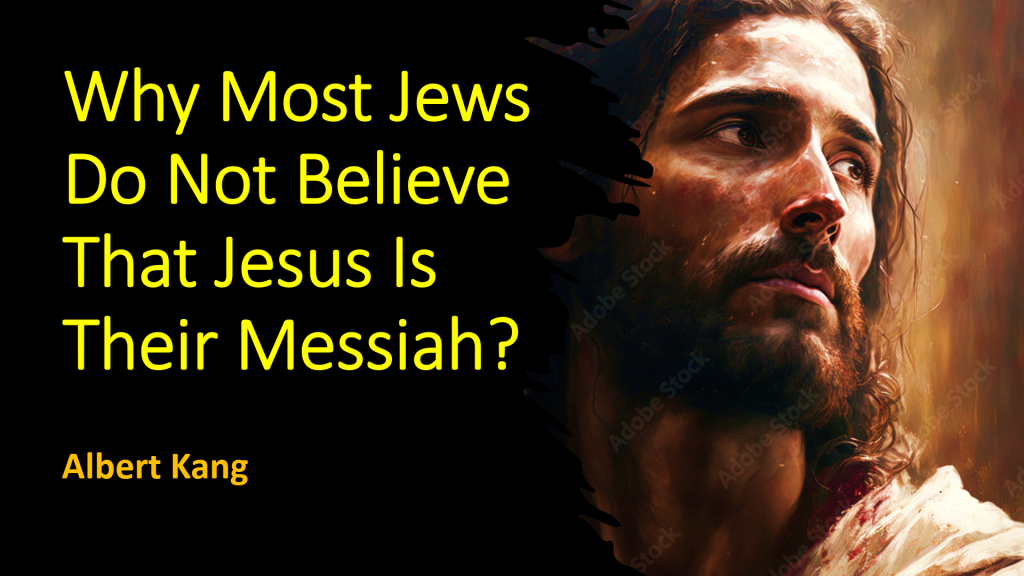
By Albert Kang
In August 2023, I wrote an article about one of my church members who was afraid that if he did not fully forgive everybody just at the moment of his death, he might end up in hell. [https://wordpress.com/post/coffeeshopstoryteller.wordpress.com/1994]
In this present article, I want to add more information to help you understand better concerning this matter. For those of us who are the disciples of Christ, we know how the Lord has placed a special emphasis and importance on this topic of forgiving others. He said that if we hold onto our anger and do not forgive, it will affect our relationship with God.
Let’s say if we have bitterness in our hearts and then die, would we go to heaven or hell? Didn’t Jesus say that if we do not forgive others, then God will not forgive us too? (Matthew 6:14-15). To gain clarity on this matter, we need to grasp the THREE TYPES OF FORGIVENESS:

I. REDEMPTIVE FORGIVENESS: The Foundation of Salvation
Redemptive forgiveness is the most important forgiveness we receive when we believe in Jesus as our Lord and Savior. It’s not something we earn by doing good things, but it’s given to us because Jesus already did everything necessary for our forgiveness and redemption on the cross.
When I was pastoring in Pittsburgh, PA, an elderly man told me the reason why he would go to heaven. I thought he would say that because Jesus died for him and provided salvation for his soul. To my horror, he proclaimed that it was because he had been a good person all his life and so he felt that he deserved to go to heaven.
Let me emphasize – salvation is not earned through personal efforts or good deeds, but rather through the finished work of Christ on the cross. This forgiveness is bestowed solely based on faith in Jesus and His sacrifice.

II. RESTORATIVE FORGIVENESS: Sanctification To Transformation
Restorative forgiveness is an integral part of sanctification and occurs after salvation. When we were saved, God accepted us as who we were but He wanted something much better for our life. Our old sinful character of selfishness and self-centredness will not do. God’s desire is to transform us all into the image of His Son, Jesus Christ.
So, sanctification is not just a one-time thing that happens in our lives. It’s an ongoing process where the Holy Spirit is sent by God to help us become the people He wants us to be. When we accept Jesus as our Savior, the Holy Spirit begins working inside us and helps us recognize our sins and make positive changes. Even though we might still make mistakes, commit sins, feel angry, or behave badly, the Holy Spirit will help us realize when we’re doing something wrong and guide us to do what’s right. It’s a journey of our spiritual growth and we are becoming more like Christ, with God’s help.
While our “sins” as believers may not jeopardize our salvation, they grieve God because they hinder the transformative process intended for us. Repentance plays a crucial role in this regard. When we acknowledge our sins, turn away from them, and seek forgiveness from God, we demonstrate our commitment to living according to His will (1 John 1:9). Repentance facilitates our growth, restoration, and an increasing likeness to Jesus.

III. RELATIONAL FORGIVENESS: God’s Love Empowers Our Love
When we have a good relationship with God, our whole being is affected. It empowers us to love, forgive, serve, resolve conflicts, and model Christ’s character. As we grow closer to God, we will become better neighbors and colleagues, contributing to a more harmonious and loving community. Here’s how we can do it:
Love and Compassion: When we cultivate a close relationship with God, we experience His love and compassion firsthand. This love transforms our hearts and enables us to extend love and compassion to those around us. We become more understanding, kind, and empathetic towards others.
Forgiveness and Grace: God’s forgiveness and grace towards us inspire us to extend the same to others. As we grasp the depth of God’s forgiveness, we become more willing to forgive and extend grace to those who may have wronged us. This attitude of forgiveness fosters healthier relationships and promotes reconciliation.
Humility and Servanthood: A genuine relationship with God helps us develop humility and a servant’s heart. Instead of seeking our own interests, we learn to prioritize the needs of others. This selflessness allows us to build meaningful connections with our neighbors and colleagues, as we actively seek to serve and support them.
Conflict Resolution: God’s wisdom and guidance help us constructively navigate conflicts and disagreements. Through prayer and seeking God’s guidance, we gain insights into resolving conflicts peacefully, promoting understanding, and fostering reconciliation.
Model of Christ: When our relationship with God is strong, we strive to reflect the character of Christ in our interactions. We seek to treat others with respect, fairness, and integrity, following the example set by Jesus. This Christlike behavior cultivates trust and promotes healthy relationships with our neighbors and colleagues.

FINAL WORDS
When we accept Jesus as our personal Savior, we receive Redemptive Forgiveness and become right with God. The Holy Spirit through the sanctifying process, helps us transform and grow through Restorative Forgiveness. God’s Relational Forgiveness affects us so deeply and it will bring us to live harmoniously with our neighbors and colleagues.
In summary, as long as we have a true Born-again experience with Jesus Christ as our Savior, we have received the Redemptive Forgiveness. If anything were to happen to us last night, we can be assured that this morning, we would be worshipping our Lord Jesus in heaven.
However, since we are not going to heaven yet and there is much to be done here on earth for the kingdom of God, we still have to go through the transformative process known as Sanctification. The closer we are to the Holy Spirit, the better our relationship would become with others. God’s love influences and empowers us to love, forgive, serve, resolve conflicts, and model Christ’s character. As we grow spiritually, we become better friends, neighbors, and colleagues, contributing to a more harmonious and loving community.
Even though we are not perfect, we are living in the “perfecting” way or the way of sanctification. The Holy Spirit will continue to prompt us to live a repented and holy life, and even if we fail just at the moment before our demise we will never need to worry about what will happen after we die. The Redemptive Forgiveness of the finished work of Christ will take care of our journey to heaven.
Here is a message on YouTube by Rev Albert Kang about these three types of forgiveness and how you can live a life of forgiveness and freedom.
https://youtu.be/lFMjGKG8pkU?si=On_5eaDl_q13yx4i































